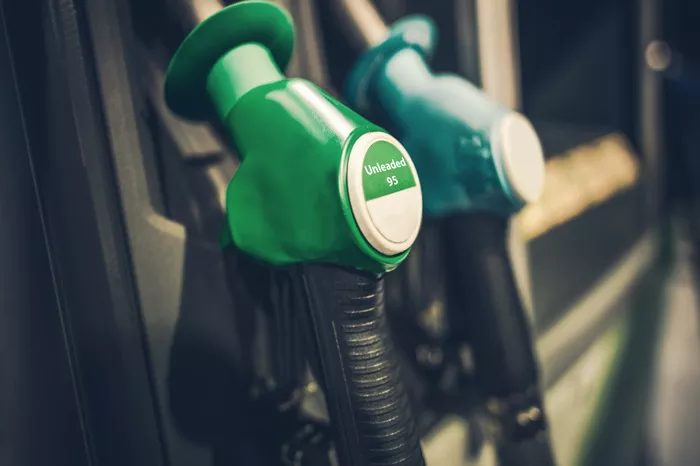Gasoline is the lifeblood of modern transportation, powering millions of vehicles worldwide. Within the realm of gasoline options, two primary types stand out: unleaded and special gasoline. Understanding the differences between these fuels is essential for consumers and industry professionals alike. This article delves into the distinctions between unleaded and special gasoline, exploring their compositions, benefits, and applications.
Unleaded Gasoline
Composition and Characteristics
Unleaded gasoline, as the name suggests, is devoid of lead additives that were once prevalent in gasoline formulations. Lead was historically used to enhance fuel combustion and engine performance but has been phased out due to environmental and health concerns. Today, unleaded gasoline primarily consists of hydrocarbons derived from crude oil, blended with additives to improve fuel efficiency and engine cleanliness.
Octane Ratings
One crucial aspect of unleaded gasoline is its octane rating, which denotes its resistance to engine knocking or pinging under compression. Higher octane ratings indicate greater resistance to premature ignition, making them suitable for high-performance engines or vehicles with turbochargers. Common octane ratings for unleaded gasoline range from 87 (regular) to 91 or higher (premium).
Environmental Impact
The absence of lead in unleaded gasoline significantly reduces harmful emissions, contributing to cleaner air quality and mitigating environmental damage. Modern automotive emissions control systems are designed to work optimally with unleaded gasoline, further minimizing pollutants released into the atmosphere.
Availability and Usage
Unleaded gasoline is widely available at gas stations globally and is suitable for most conventional gasoline-powered vehicles. It is the standard choice for everyday driving and is preferred by manufacturers for its compatibility with modern engine technologies.
Special Gasoline
Definition and Varieties
Special gasoline encompasses a range of formulations that deviate from standard unleaded options. These fuels are often designed to meet specific performance requirements or cater to niche markets. Examples include high-performance racing fuels, ethanol-blended gasoline (E85), and gasoline with specialized additives for enhanced engine protection or fuel economy.
High-Performance Racing Fuels
Special gasoline formulated for racing purposes often boasts exceptionally high octane ratings, exceeding those found in typical unleaded gasoline. These fuels are engineered to withstand extreme conditions and optimize engine performance during races, where every horsepower and torque increment matters.
Ethanol-Blended Gasoline (E85)
Ethanol-blended gasoline, commonly referred to as E85, contains a higher percentage of ethanol (typically 51-83%) compared to standard gasoline. Ethanol is derived from renewable sources such as corn or sugarcane and offers environmental benefits, including reduced greenhouse gas emissions. E85 is primarily used in flex-fuel vehicles capable of running on varying ethanol blends.
Special Additives and Formulations
Some special gasoline variants include proprietary additives that enhance engine cleanliness, prevent fuel system deposits, or improve fuel combustion efficiency. These additives may cater to specific vehicle types or address regional climate conditions, ensuring optimal engine performance and longevity.
Applications and Suitability
Special gasoline is often chosen for applications requiring enhanced performance or specific fuel characteristics. It is commonly used in high-performance sports cars, vintage vehicles with higher compression engines, and equipment operating in extreme environments. The suitability of special gasoline depends on its formulation and intended use, aligning with performance requirements beyond standard driving conditions.
See also: Best 5 Unleaded Fuels To Use
Comparative Analysis
Performance Metrics
Unleaded gasoline and special gasoline differ primarily in their octane ratings and chemical compositions. While unleaded gasoline serves as a general-purpose fuel suitable for most vehicles, special gasoline offers tailored solutions for performance-oriented applications or specific environmental considerations.
Environmental Impact and Regulations
Both unleaded and special gasoline formulations adhere to stringent environmental regulations aimed at reducing air pollutants and promoting sustainable fuel practices. Special gasoline variants, such as E85, contribute to lower overall carbon emissions compared to traditional gasoline, aligning with global efforts to combat climate change.
Cost Considerations
The cost of special gasoline varies significantly depending on its formulation, octane rating, and regional availability. High-performance racing fuels and specialized blends may command higher prices due to their niche market demand and advanced chemical compositions. In contrast, standard unleaded gasoline remains cost-effective for everyday driving and general transportation needs.
Future Trends and Innovations
Alternative Fuel Sources
The future of gasoline consumption is increasingly influenced by alternative fuel sources and advanced technologies. Biofuels like ethanol and renewable diesel are gaining traction as sustainable alternatives to traditional gasoline, offering similar performance benefits with reduced environmental impacts.
Electric Vehicle Transition
The rise of electric vehicles (EVs) is reshaping the automotive industry and fuel landscape. As EV adoption grows, traditional gasoline consumption may decline, prompting further innovation in fuel efficiency and emission reduction technologies for internal combustion engines.
Regulatory Advancements
Continued regulatory advancements are expected to shape the future of gasoline production and consumption. Stricter emissions standards, fuel efficiency mandates, and incentives for renewable fuels are driving industry efforts to develop cleaner, more efficient gasoline formulations.
Conclusion
Understanding the differences between unleaded and special gasoline is crucial for making informed decisions about fuel choices and vehicle performance. Unleaded gasoline remains the standard option for everyday driving, offering cleanliness, efficiency, and widespread availability. Special gasoline variants cater to diverse needs, from high-performance racing to environmental sustainability, showcasing the versatility and innovation within the gasoline industry. As technology evolves and environmental priorities shift, the development of advanced fuel solutions will continue to drive progress towards a more sustainable and efficient transportation future.
Related topics:
What Is The New Unleaded Fuel Called? [Revealed]

